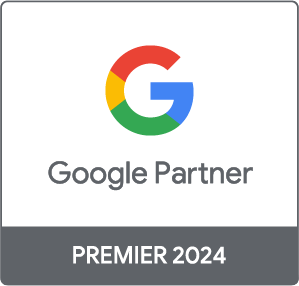Impact of SEO changes on your business
Search engines are constantly evolving. What should we learn from these changes and what impact will they have on your practices? How can you take advantage of these changes to launch concrete actions that will have a positive impact on your organic performance?
We'll pinpoint the most important information for you and help you turn these changes into opportunities for your business.
1. The “Helpful Content Update” of September 2023
What is it?
Google constantly updates its search algorithm, but some updates are more important than others and the “Helpful Content Update” is one of those!
This update affects the “Helpful Content System,” which works together with other systems that are part of Google’s algorithm to categorize websites based on content quality and their usefulness to users.
The goal of this update is to continue highlighting sites offering quality content for users while penalizing sites with lower-quality content. Particular aspects were notably updated in Google’s documentation.
What impact will this have on your business?
We recommend taking a look at your organic performance in September/October 2023 and comparing this with previous months and/or the previous year.
Can you see an impressive increase in organic performance that cannot be explained by any activity on your side or that is related to market growth? If so, you’re fortunate: This means that Google considers you to be one of the good ones.
However, if you see a noticeable decline in your performance and you haven’t made any specific changes to your site and your marketplace is not in decline, you might need to conduct further investigations!
What can you do in concrete terms?
Before coming to any hasty conclusions, we recommend validating your determinations with an SEO expert who can help you identify the real reason for the decline.
If the organic performance of your site has been negatively affected, this means you’re not providing content that is sufficiently useful to users. Google advises these sites to identify and eliminate or replace the ineffective content. Obviously, this can’t be done in a day; an effective SEO content strategy needs to be planned in advance.
2. Displaying site names in search is now available everywhere
What does this mean?
Since October 2022, Google has included the names of sites as well as their logos above search results. Today, site names are now available in all languages in which Google search is available, on mobile and desktop.
Example of site name and logo
What impact will this have on your business?
Your brand will now have more visibility in Google’s search engine. A strong brand will therefore now have greater impact in the search engine.
What can you do in concrete terms?
If your site name and logo do not display correctly in search results, you need to do a few things to send Google the right signals:
3. Lack of visibility for How-To and FAQ rich results
What does this mean?
Rich results are a good way to gain visibility in search engines while giving your site more space. This can be enabled through the integration of structured data.
However, in Google’s own words, “to provide a cleaner and more consistent search experience,” the search giant has decided to reduce visibility of FAQ rich results and even completely remove visibility for How-To rich results.
Example of FAQ rich results before (on left) and current visibility (on right)
What impact will this have on your business?
If you had organic performance that was partly acquired through this organic visibility of FAQ and How-To rich results, you will potentially see a reduction in your performance.
What can you do in concrete terms?
In your Google Search Console, you can see whether you had put in place How-To and FAQ structured data that triggered enriched data in search engines. This will very quickly give you an idea if this might negatively affect your performance. If there is no evidence of these two types of structured data in Google Search Console, rest assured that this update will not affect your performance. If you have these two types of structured data integrated into your site, you can leave them. However, you should note that your organic performance might be affected.
Are you planning to integrate FAQ and How-To structured data into your site in the coming year? You might want to reconsider your priorities, since its impact on your performance will now be reduced. But be careful—structured data is used by Google for another purpose! These data also provide Google with more context for the content of your pages so it can index them better. So while they do remain useful, FAQ and How-To structured data are losing some significance.
4. Google is using clicks for rankings
What does this mean?
Until now, Google has vigorously denied using clicks for its search result rankings, at least publicly. But in hearings currently underway in the U.S. concerning potential antitrust violations by Google, there have been conflicting messages.
Eric Lehman, who worked at Google for 17 years on search quality and ranking in the search engine, testified in court that Google uses click data to rank sites.
What impact will this have on your business?
Improving your appearance in search results has always been important for improving visibility in search engines. So this news about clicks to websites isn’t really new.
However, this information demonstrates that this also has an impact on the way your site is ranked, with the result being an increase in clicks and therefore the performance of your site.
What can you do in concrete terms?
Working on the appearance of your site in search engines has always been important, but now you should realize that this might be even more important than you had previously thought.
That’s why continually improving the appearance of your title and meta-description tags in SEO is critical. You can even benefit from using data from A/B testing of your SEM campaigns to optimize your tags.
5. Backlinks are less important to Google
What does this mean?
Google’s Gary Illyes stated that people overestimate the importance of links, thereby confirming that they haven’t been among the three main contributors to rankings for some time now.
Of course this information should be taken with a grain of salt. External links have always played an important role in search ranking factors. It’s important to understand that today’s Google search is different than that of 2014 or the early 2000s, when PageRank reigned supreme and every link was considered an “upvote.” Technological advances, particularly as a result of machine learning (such as BERT and MUM), understanding of natural language and other relevance indicators now play a bigger role within Google’s algorithm.
What impact will this have on your business?
If your SEO strategy revolves solely around external links, your long-term performance might be severely affected.
What can you do in concrete terms?
For your long-term performance, external link tactics are not necessarily the first solution you should turn to. Content is still and will always be the path towards organic performance.
Google’s statements regarding the desire to reduce the importance of external links in ranking factors simply reinforces the observation that when it comes to SEO, quality content is king!













